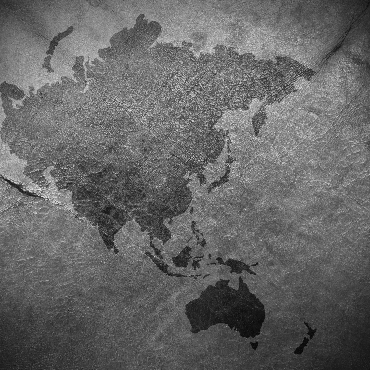ACCUSATIONS ROIL INDIA-CANADA TIES
On September 18th, the Canadian government accused India of assassinating a Canadian Sikh leader, Hardeep Singh Nijjar, via a covert operation on Canadian soil earlier this summer. For years, New Delhi had labeled Nijjar, who was an advocate for the Khalistan movement (a separatist movement that calls for the creation of a sovereign ethno-religious state for the Sikh population in Punjab), as a terrorist. The accusations dramatically exacerbated already-frayed relations between the two countries, which had led Canada to pause talks on a proposed trade treaty a month prior.
An outraged India categorically denied Ottawa's claim and subsequently demanded Canada withdraw 41 of its 62 diplomats from the country. Canadian officials called India's demand a "violation of international law" and recalled its diplomats in response. As a consequence, Canada was forced to temporarily suspend its consular offices in Bengaluru, Chandigarh, and Mumbai, leaving only its office in New Delhi operational. The disruption is significant, as Canada is home to one of India's largest diasporas, and the tensions have already caused a delay in Canada's immigration process. While Canadian Prime Minister Justin Trudeau seems to not be seeking to escalate the situation further, neither Ottawa nor New Delhi seem to be in any hurry to restore diplomatic ties. Not all cooperation has ceased, however, as military ties have remained intact, but the diplomatic spat has negatively hurt trade, investment, and immigration between the two nations. (BBC, October 20, 2023)
NEW MALDIVIAN PRESIDENT VOWS A COLD SHOULDER FOR INDIA
On September 30th, Mohamed Muiz secured a victory over incumbent President Ibrahim Mohamed Solih in the second presidential runoff election in the Maldives. Muiz's political party, the People's National Congress (PNC), is widely perceived as having a strong pro-China agenda. Historically, the Maldives has followed an "India First" policy, and the two countries have benefited from a mutual economic and defense relationship. But with the new election, this is all set to change, as Muiz has vowed to remove the Indian military from the archipelago nation. Muiz's campaign alleged that Solih compromised the Maldives' sovereignty by permitting an unchecked Indian military presence. (Associated Press, October 3, 2023)
CHINA'S DIPLOMACY A SIGN OF GROWING INTEREST IN AFGHANISTAN...
In September, China became the first country to send a new ambassador to Afghanistan, a move met with high praise from the Taliban government in Kabul. While China has made clear that this appointment does not constitute a formal recognition of the Taliban's government, Beijing does hope to maintain its diplomatic and security ties with Afghanistan. China has also agreed to a $60 billion connectivity expansion into Afghanistan for the China-Pakistan Economic Corridor, which is part of China's Belt and Road Initiative. Further progress in bilateral ties was made back in January, when the Taliban signed a $150 million annual investment deal with the Xinjiang Central Asia Petroleum and Gas Company, allowing the Chinese firm to extract oil in northern Afghanistan. (Voice of America, September 29, 2023)
...AS KABUL COMES ABOARD THE BELT AND ROAD
In turn, Beijing's appointment of a new ambassador to Afghanistan has strengthened the Taliban's optimism regarding further global recognition. The Taliban's acting Commerce Minister, Haji Nooruddin Azizi, recently announced that Afghanistan has formally requested to join China's Belt and Road (BRI) Initiative through the China-Pakistan Economic Corridor. Afghanistan can offer China a multitude of mineral resources, such as copper, lithium, and iron, and some Chinese companies have already begun operating in the country. However, security concerns remain a hindrance to further growth of the Sino-Afghan relationship, as Islamic State militants have targeted hotels that house Chinese investors in Kabul. (Reuters, October 19, 2023)
ALARM OVER PAKISTAN'S PLAN TO EXPEL ILLEGAL AFGHAN MIGRANTS
In late September, Islamabad announced plans to expel roughly one million refugees from neighboring Afghanistan, as well as other foreign nationals residing in the country unlawfully. This new policy has alarmed the United Nations, the U.S., and other nations, all of which worry about the potential humanitarian repercussions. For decades, Pakistan has played an integral role in welcoming migrants and refugees, especially after the Taliban's return to power in Kabul more than two years ago. Before August 2021, Pakistan served as a host country for almost 2.7 million Afghans, adding another 700,000 after the Taliban takeover. Islamabad, however, asserts that recent terrorist attacks on its soil are, in part, caused by Afghan nationals, citing this as the reason for its new mass deportation policy.
In response, the United Nations High Commission for Refugees in Islamabad has said it is ready to support Pakistan in managing and registering Afghani migrants in need of international protection as it awaits clarity on Pakistan's new policy regarding illegal migrants. For its part, the U.S. State Department has urged Pakistan to adhere to the principle of nonrefoulement and expressed hopes that Islamabad will continue to provide humanitarian assistance as conditions in Afghanistan continue to deteriorate. (Voice of America, October 19, 2023; Voice of America, October 17, 2023)
THE DIPLOMATIC COSTS OF CHINESE LOANS
Nepal's second-largest city, Pokhara, recently inaugurated a new airport, a project constructed by Chinese firms and financially supported by Beijing. While this airport is a notable addition to the city's infrastructure, it represents a diplomatic win for China in its quest to expand its influence in Nepal. Moreover, the anticipated passenger traffic at Pokhara's airport might not be sufficient to service the 20-year loan agreement Kathmandu signed with Beijing back in 2016 for its construction. While beneficial to Nepal's growing infrastructure, the airport has become a point of diplomatic tension between India and China. After completion of the project, Beijing wasted no time in declaring it a part of its Belt and Road Initiative. Though Nepal quietly rejected this label, India has yet to grant permission for flights between Nepali and Indian cities. This lack of flights, in turn, could have an expensive and adverse effect on Nepal's debt agreement with China. (New York Times, October 16, 2023)
Want these sent to your inbox?
Subscribe



